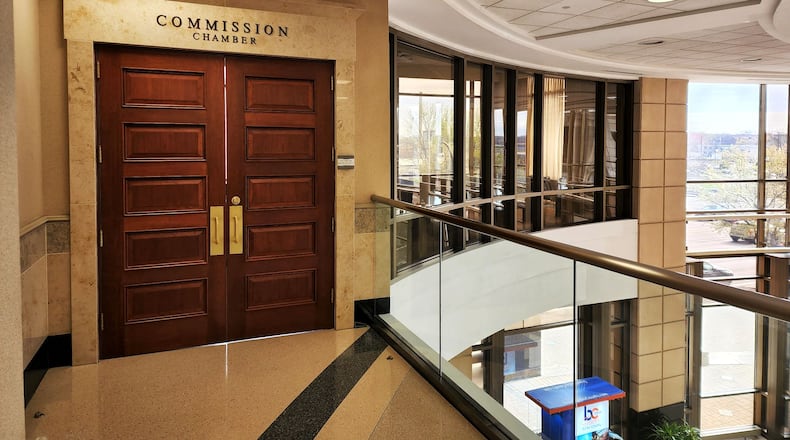County Administrator Judi Boyko has been working on the project for months and plans to issue the formal request June 13. The deadline is July 29 and she plans to convene a committee to evaluate the submissions and believes they could have a contract by the end of the year, assuming the pitches are qualified.
Commissioner T.C. Rogers pushed to bring three projects all three commissioners concur with forward and this was one, along with helping with township road paving and the Middletown Paperboard site demolition.
“We’re moving on all three and maybe another five or six others, so we’re pushing it as hard as we can within the confines of the regulations and procedures involved,” Rogers said. “Just like I’ve said, we want it right.”
When they held work sessions last summer on requests to share their $74.4 million allotment of federal ARPA money they heard from two groups about the dire need to get high speed internet access countywide.
Oxford Assistant City Manager Jessica Greene told them during the height of the pandemic when students in the Talawanda School District were forced into remote learning, the city spent $16,000 purchasing 380 hot spots so they could. She said the problem is much more pervasive.
“I believe this is a huge issue of economic and equity access to education, employment, public health and job growth...,” Greene said. “Before COVID it was an annoyance, after COVID it was crucial.”
The ARPA rules and regulations have mutated several times with the federal government broadening allowable uses of the $350 billion allocated to help local governments survive the pains of the pandemic. Broadband has always been one of the specifically allowed uses of the funds.
Boyko told the Journal-News the requests for qualifications require the potential providers to prove they have the technical expertise to handle the job that will have good upload and download speed and their financial wherewithal is “robust enough that they’ll be around to continue to provide these services.”
On the proposal side they want to know the actual plan.
“The county wants to understand what’s your proposed methodology to deploy under the terms and conditions Butler County wants,” Boyko said. “Some of those terms and conditions are your model, your practice of deploying the infrastructure, what is your market share currently and your ability to provide at the standards we set.”
She said the service must be affordable to the customers it will serve and that they can provide it to every entity — residential, commercial or government — within the service area. She said the budget is $10 million so they also want options in case they need to scale back the project.
Former county administrator and Butler Rural Electric Cooperative engineering manager Charlie Young gave the commissioners a $3.9 million proposal to bring high-speed broadband to about 2,700 Butler County rural locations, in partnership with Cincinnati Bell. They have since sealed another deal and don’t need the commissioners’ money for their project.
Young told the Journal-News he has endeavored to discern how much of the county lacks adequate internet service using the Broadband Ohio website and it isn’t easy. His best guess is only about 55% of people have true, reliable, high-speed access.
The last time high speed internet was a county issue was the Dynus fiber optics scandal that started in 2005. Former county Auditor Kay Rogers, former Commissioner Mike Fox and others went to federal prison for their part in the debacle.
Dynus Corp. was contracted by Butler County to operate the county’s fiber-optics system, which was built to help spur economic development. Rogers was at the core of the scandal, falsifying documents that secured loans for Dynus in the name of the county.
County Prosecutor Mike Gmoser’s office has been combing over the RFP and he said any vendors will also be fully vetted.
“The money that is being made available that certainly can be spent has a very strong public purpose to it and a strong equality service to it and a benefit to the general population and especially the students that are going to be served in those areas,” Gmoser said. “It’s pretty hard to make a case against it as long as all the i’s are dotted the t’s are crossed sand we don’t have any scoundrels sticking their nose in to benefit. That’s where somebody like me will always be available to make sure that the problems of the past, before my time, which I am well aware of, don’t happen again.”
About the Author

